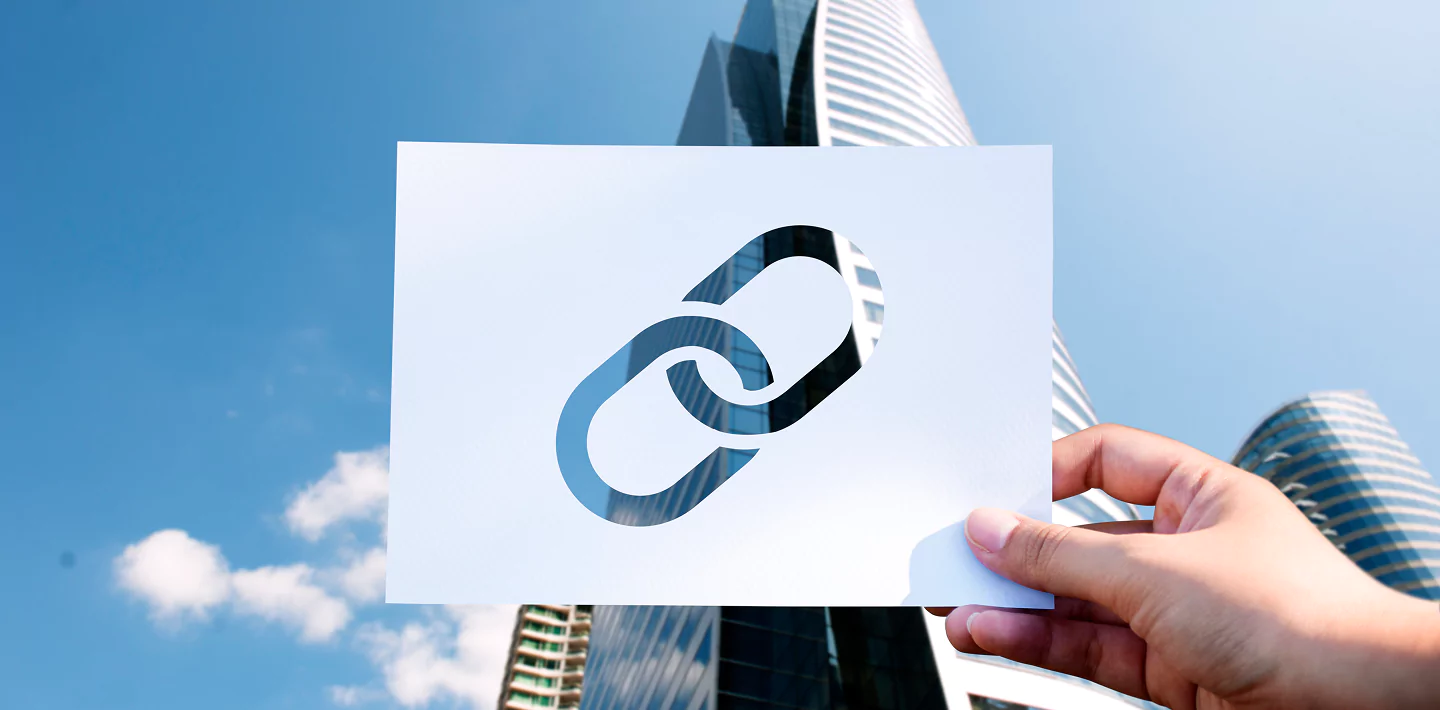If you want to optimize your website for search engines, there is one component that always has a strong effect on search engine optimization (SEO): inbound links. Backlinks, which are another name for them, are hypertext links from other websites pointing to your own.
Think of these links as virtual endorsements by vote: when another website points to your work, it’s effectively telling search engines that your website is credible, informative, and deserving to rank.
The more you have in terms of quality inbound links, the better the probability that you’ll rank higher on search engine result pages (SERPs), drive organic traffic, and build a strong online presence.
So, just what are inbound links, and why do they matter so much? This article discusses this topic. You will learn how to build quality inbound links, discover their main types, and avoid mistakes when creating these links.
What are inbound links?
These are links from other websites that link to a page within your website. For example, if a popular blog has a link to one of your articles, that is an inbound link (or backlink) for your website.
These links do two general jobs:
- Referral traffic: They send new traffic to your website from somewhere else.
- Search engine signals: These links tell search engines your content is trusted and authoritative.
Not all inbound links are created equal. Inbound links from good, high-authority sites are worth more in terms of SEO than incoming links from bad or low-authority sites. From Google’s point of view, one excellent backlink from a good, trusted source (like a university or a news site) may be worth more than hundreds of unknown or spam sites!
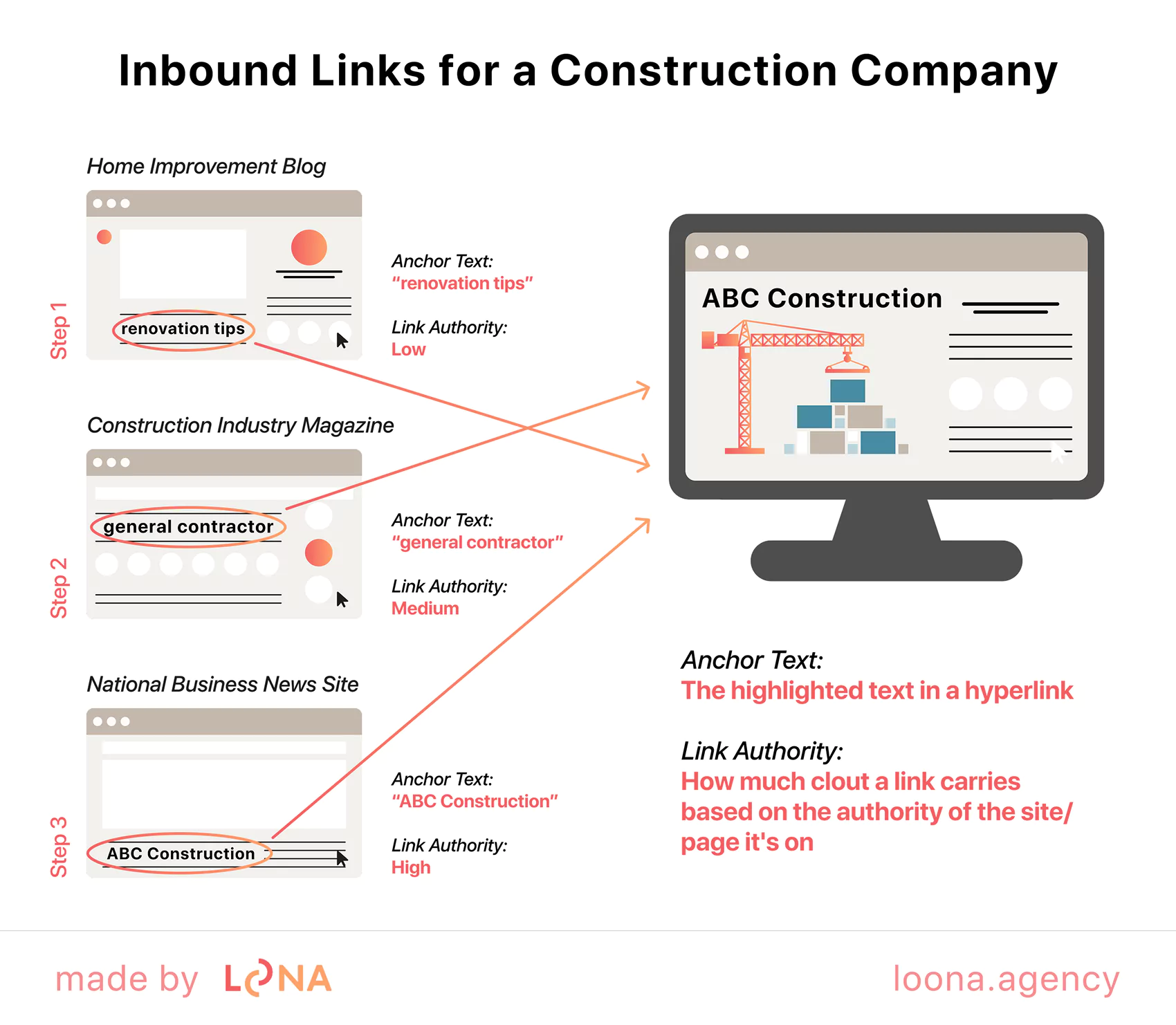
Inbound links are the foundation for SEO success. They enhance your domain authority, enhance keyword rankings, and ultimately raise your site’s visibility in the search engines.
How inbound links build authority
Inbound links are among the core foundation blocks of how search engines perceive a website’s authority, a measurement of its trustworthiness and relevance to its niche. When other trustworthy sites reference your content, it signals search engines that your information is valuable and credible.
Here’s how this works in practice:
Links act as endorsements of trust
When a solid, old-established website links to you, it’s effectively a vote of confidence. Google’s algorithm sees this as evidence that your content may be helpful and link-worthy. The better the reputation of the source of the link, the stronger the endorsement.
Inbound links strengthen the relevance of topics
You get backlinks from sites in your field or niche, and the authority of your website and its content rises. You see, if several marketing blogs link to your SEO content, Google will consider you an authority in that particular field.
They boost domain and page authority
Moz and other tools calculate domain authority (DA) and page authority (PA) based on various factors, one of which is inbound links SEO. Obtaining backlinks from strong authority websites helps to improve your authority scores. It is likely that your web pages will rank higher on search engine results.
They build a web of trust
Inbound links help integrate your site within the broader web space. The more you engage with credible and reputable sites, the more authoritative your site will appear to search engines and your visitors, too.
Types of inbound links
Not all backlinks are equal. Some are far more valuable to SEO than others. Identifying the types helps you focus your resources where they will do the most good.
Natural editorial links
The most valued types of backlinks. They occur when other web pages link to your content automatically because they utilize it, find it valuable, or regard it as authoritative. For example, a digital marketing blogger might just link to your in-depth SEO guide automatically as an authoritative resource.
Manual outreach links
These are obtained through deliberate actions like outreach campaigns. You may contact webmasters, journalists, or bloggers and ask them to link to a particular piece of content on your site. If done well, with an excellent pitch and content that is relevant to them, that can be a beneficial tactic.
Guest post links
By writing guest posts for other websites in your industry, you can add a link back to your website. Guest posting builds brand visibility and credibility.
Business profile links
Most business listing sites and online directories enable you to add your website URL. Even though those links may not carry as much SEO weight if included separately, they still contribute to your backlink profile and help with local SEO.
Forum and comment links
Forum and blog comment links are usually ranked as lower quality and are usually marked “nofollow” (they don’t pass SEO authority). Yet, if used in moderation and where the discussion is pertinent, they will still generate niche traffic.
Before you build links…
When building backlinks, their technical aspects must be considered. Inbound links are dofollow and transfer SEO authority to your site, or nofollow, which do not, but still transfer referral traffic and brand recognition.
Also, take care against black-hat link-building practices such as link purchasing, link exchange, or link farm membership. These might bring short-term results, but typically result in search engine penalties along with long-term damage to your domain’s reputation.
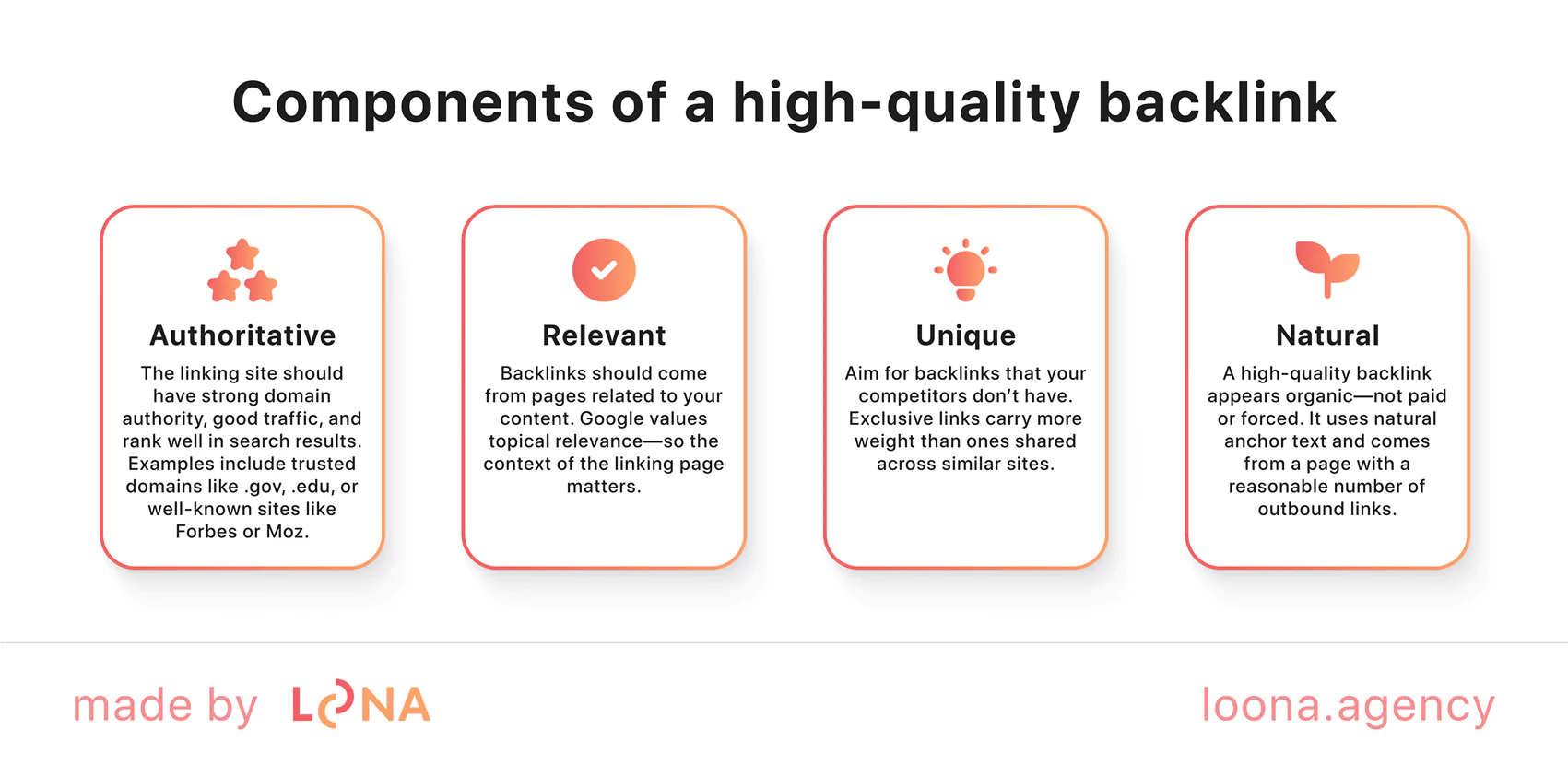
How to build quality inbound links
Getting inbound links is getting quality links that build your authority and relevance.
These are good strategies to generate high-quality backlinks in the correct way.
Produce link-worthy content
Start by creating content that people actually want to link to. These are:
- Original research and data;
- In-depth how-to guides;
- Infographics and visual content;
- Expert interviews or roundups;
- Case studies and success stories.
The more quality content you produce, the more likely other people will link to it organically.
Apply broken link building
Look for broken links on other quality sites that exist in your niche, and replace them with your own. Tools like Ahrefs or Broken Link Checker will assist you in spotting these opportunities. This is a win-win for site owners who receive a high-quality backlink from you.
Use the skyscraper technique
Discover high-quality content in your space, and then produce something better. This means more up-to-date, more in-depth, or more stunning. Contact the sites linking to the original content and suggest that they link to your enhanced version instead.
Build relationships in your niche
Influencer, blogger, and content creator, networking in your niche can be the doorway to authentic backlink opportunities. Post insightful comments, republish their posts, and engage with them on social media to build genuine connections.
Get listed in quality directories
Make your website or business part of well-established industry-specific directories instead of general, low-quality directories. Be careful to submit to directories that are relevant to your niche or industry.
Provide expert quotes
Use platforms like HARO (Help a Reporter Out) or Qwoted to provide quotes to journalists searching for expert insight. If your contribution is utilized, you’ll often obtain a backlink from the publication.
Common link-building mistakes
Building inbound links is critical to SEO success, but not all strategies work well. In fact, some link-building strategies can be worse than useless.
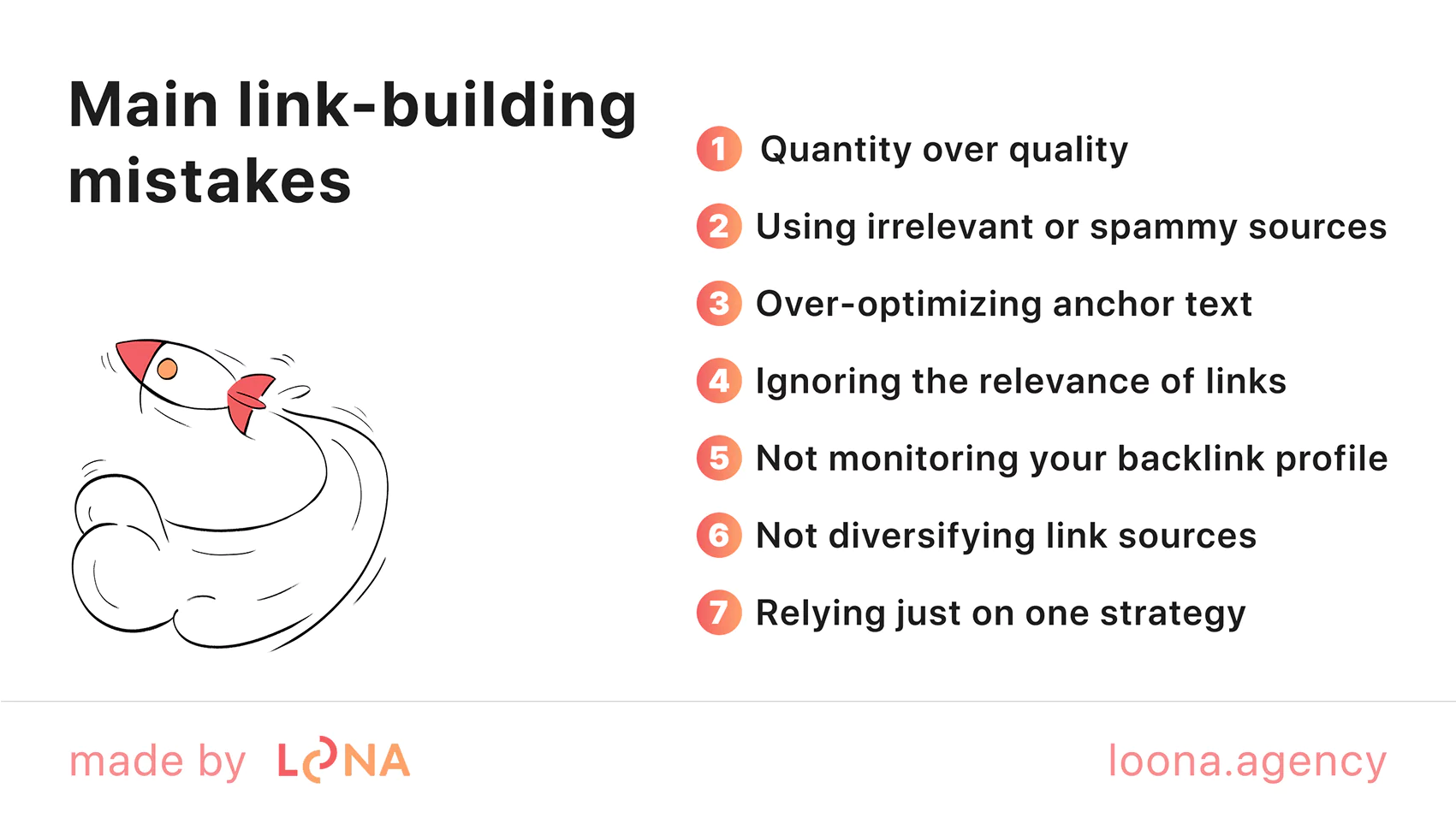
1. Quantity over quality
It’s a fake impression that more links always lead to great SEO results. On the contrary, a small number of high-quality links from authoritative sites are much better than hundreds of poor-quality ones. Neglecting to consider the source could water down your backlink profile and trigger spam filters.
2. Using irrelevant or spammy sources
Getting backlinks from external or spam sites (content farms, gambling websites, or link networks) will harm your SEO. These links could be ignored or penalized entirely by Google, especially if they appear artificial or manipulative.
3. Over-optimizing anchor text
What is an anchor text? It is the text users click on to follow a link. While it’s a good practice to include keywords, duplicated exact-match keywords repeated throughout are bad in the eyes of search engines. It is said to be over-optimization, which can result in penalties.
4. Ignoring the relevance of links
Backlinks have to come from pages and sites on the same topic. A backlink from a food blog to a cybersecurity site, for example, doesn’t make sense to users (or search engines).
5. Not monitoring your backlink profile
Your backlink profile isn’t fixed; it fluctuates when people link to your website. Neglecting to check inbound links to website can lead to toxic backlinks silently destroying your rankings over time. Ahrefs, Google Search Console, and SEMrush can help you find toxic backlinks.
6. Not diversifying link sources
Having too many links from the same domain is bad for your backlink profile. Search engines prefer to see a diversified cluster of sites pointing to your content because it indicates more recognition.
7. Relying just on one strategy
Relying solely on guest blogging, directories, or outreach can limit your growth and make your link-building strategy predictable. It is more effective to combine multiple tactics: content marketing, digital PR, and broken link building.
At Loona Agency, we are experts in SEO with extensive experience in strategic link-building. We have helped companies expand their online presence by creating high-quality inbound links that have authority, generate traffic, and provide long-lasting results.
Future trends of inbound links
Incoming links will influence your website’s success in 2025 and the future. Here’s what’s on trend in the future of link building and how to outperform competitors:
Topical authority > quantity
Search engines check the relevance and authority of the linking website within a particular field. A single backlink from a very reputable website within your niche will still hold more value than tens from non-relevant platforms with poor traffic.
AI-driven link evaluation
Google and other search engines are using AI actively to better understand content context, identify any link manipulation, and evaluate natural link profiles.
Try to avoid spammy link-building practices. It is essential to craft high-value, link-worthy content that attracts organic backlinks.
Brand mentions > traditional links
It is interesting that now search engines are starting to use unlinked brand mentions (authority signal), especially if they’re from reputable publications.
So, establish a strong brand presence in media, podcasts, reviews, and niche sites, even if you don’t get a clickable backlink every time.
The need for experience-rich content
Interactive and multimedia content (videos, infographics, calculators, and virtual tours) is becoming an important source of natural backlinks because users and publishers enjoy sharing helpful, entertaining assets.
Local and hyper-niche backlinks
For companies targeting local audiences, backlinks from local sites, regional blogs, and other local news sources will carry greater weight. It is because Google continues to develop its local SEO algorithms.
Deeper inbound link analysis
Search engines identify low-effort-generated guest posts. AI-generated content for link building will harm the visibility of these links. Content uniqueness, author expertise, and editorial quality matter more and more. So, be careful with AI.
A constant in a changing landscape: Work with experts
While link-building trends evolve, there is one constant: businesses that work with experts find better, faster, and more long-term SEO results.
At Loona Agency, we offer effective link-building solutions that will help you thrive on the web. Our services include:
- Outreach to authoritative sources
- Guest posting & content placement
- Digital PR and brand mention
- Inbound link analysis and optimization
- Broken link building
- Directory submissions (local SEO)
- Strategy-driven, organic link acquisition
Case in point: Peiko
Peiko, a blockchain development company, approached us with low-quality traffic, a spammy link profile, and poor SEO. We embarked on a full SEO and link-building campaign for the US and UAE markets.
Results of partnering with Loona Agency
- 4 times as many leads from organic search
- 40% of leads are now qualified
- High-quality backlinks substituted for toxic ones
- CRM and lead tracking are integrated
- Content and SEO are now completely in sync
Peiko is now enjoying long-term expansion, increased visibility, and an SEO presence that’s based for the future.
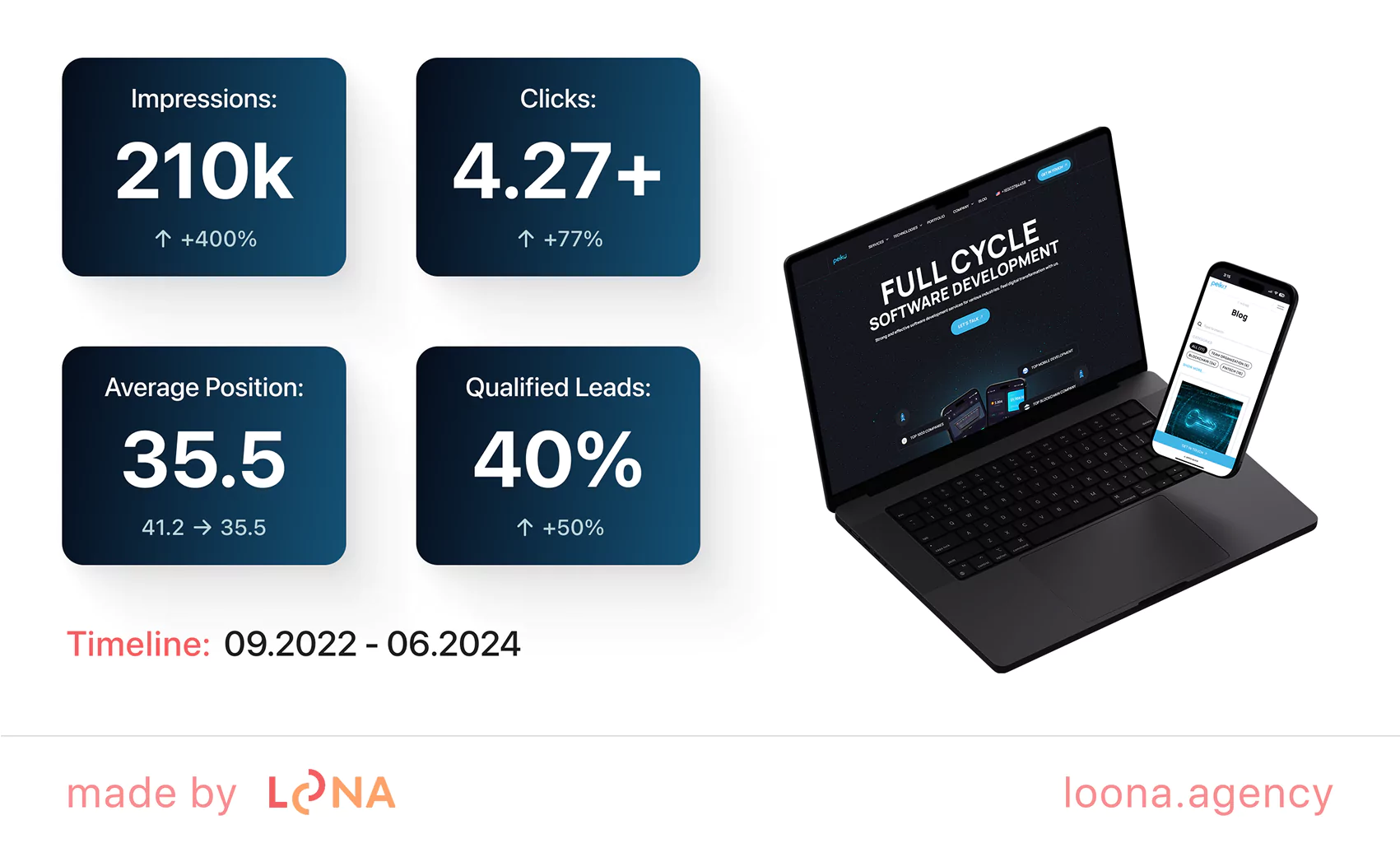
Final thoughts
Inbound links remain among the most notable indicators of a website’s authority, trustworthiness, and visibility in search. But obtaining quality, future-proofed backlink portfolios requires more than stale tricks or cuts: it requires strategy, great content, and insider expertise.
Whether you’re entering new markets or aiming to dominate your space, working with experts ensures your link-building efforts deliver real business results.
Looking for how to check inbound links to my website and how to optimize them? Make the most of your backlink profile with Loona Agency! Contact us today. We will build the strategy and connections you wait for to thrive in search.
FAQ
01 What are inbound links?
These links from other websites lead to your site. Search engines consider them like recommendations. Quality inbound links from credible sources can seriously improve your position.
02 How to find inbound links for a website?
If you want to find incoming links, you can use online tools like Google Search Console, Moz, Ahrefs, or SEMrush to find out which websites are linking back to your pages. These indicate the number, source, and quality of your inbound links.
03 Are all inbound links equal?
No. Links from authoritative websites in your sector have far greater value than links from low-quality or off-topic sources. For good SEO, quality trumps quantity.
04 How many backlinks do I require to rank?
There isn't a specific number; it depends on niche, competition, and content. That being said, some decent, relevant backlinks will sometimes trump dozens of crappy ones.
Love what you’re reading? Sign up for our newsletter to get our newest articles, helpful tips, and fresh marketing updates delivered right to you. No spam, just the good stuff.
